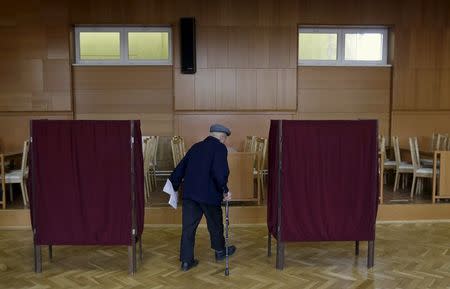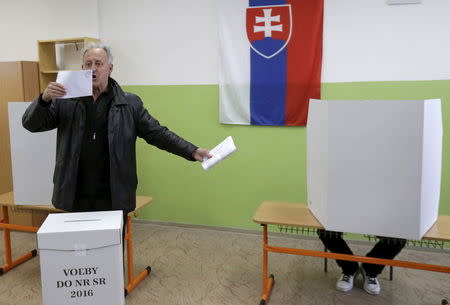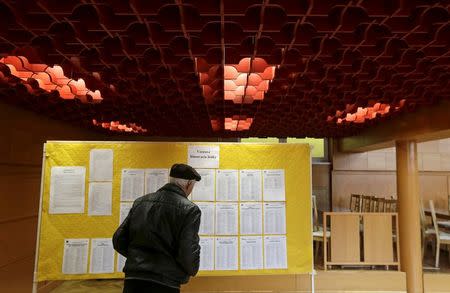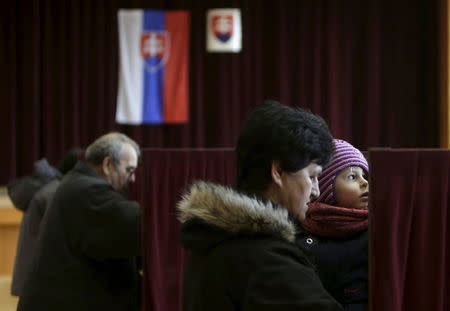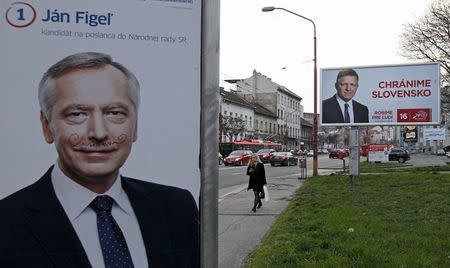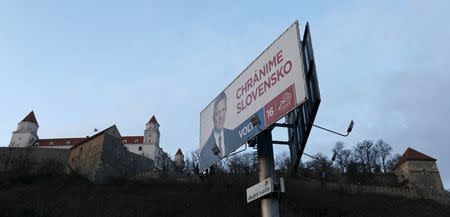Slovak PM Fico leads election but may have trouble forming majority
By Tatiana Jancarikova BRATISLAVA (Reuters) - Slovak leftist Prime Minister Robert Fico won Saturday's election, according to an exit poll, but gains by a number of opposition parties including far-right militants could produce a fractured parliament and complicate formation of a government. Fico, whose anti-immigration views chime with neighbors Poland and Hungary, won 27.3 percent of the vote, much less than around 35 percent predicted in opinion surveys, the exit poll by Focus agency for TV Markiza showed. It had been expected Fico's Smer party would lose its outright majority, but the polls showed it could be tough for him to form a coalition with a majority in parliament. With Slovakia due to take over the European Union's rotating presidency from July, giving it a bigger role in EU policy discussions over the bloc's migration crisis, the election is being watched closely in Brussels. Analysts had expected a combination of popular welfare measures such as free train rides for students and pensioners and his opposition to immigration even by refugees should secure Fico enough to form a government with a coalition partner. The polls showed that up to nine groups may win seats, including a range of center-right parties, and the radical right party of central Slovak governor Marian Kotleba. A strong showing by center-right parties could give them a chance to form a very wide anti-Fico coalition that might tone down the anti-immigration rhetoric. But any such deal may include the libertarian SaS party, second in the exit polls with 13.3 percent, whose refusal to provide guarantees for a bailout of Greece brought down the previous center-right government in 2012. Actual voting results were expected to trickle in late on Saturday and early on Sunday. Fico, who dismisses multi-culturalism as "a fiction", has pledged never to accept EU quotas on relocating refugees who have flooded into Greece and Italy from Syria and beyond, and has launched a legal challenge to the plan. Fico has had poor relations with an often-critical Slovak press and opposes EU sanctions on Russia, but has not sought constitutional changes as in Poland and Hungary. ECONOMIC SUCCESS Slovakia is one of the euro zone's most financially sound states, popular with foreign investors, particularly car makers. But unemployment of more than 10 percent and vast regional differences in wealth, as well as low healthcare and education standards, have disappointed many voters. Opponents portray Fico as a populist who ignores the need to reform schooling and healthcare, seen by critics as inefficient and corrupt. However, most opposition parties agree with Fico's views that Muslims cannot integrate into predominantly Catholic Slovakia and pose a security threat, although they use less aggressive language. (Additional reporting by Jan Lopatka; Editing by Eric Meijer and Ralph Boulton)


